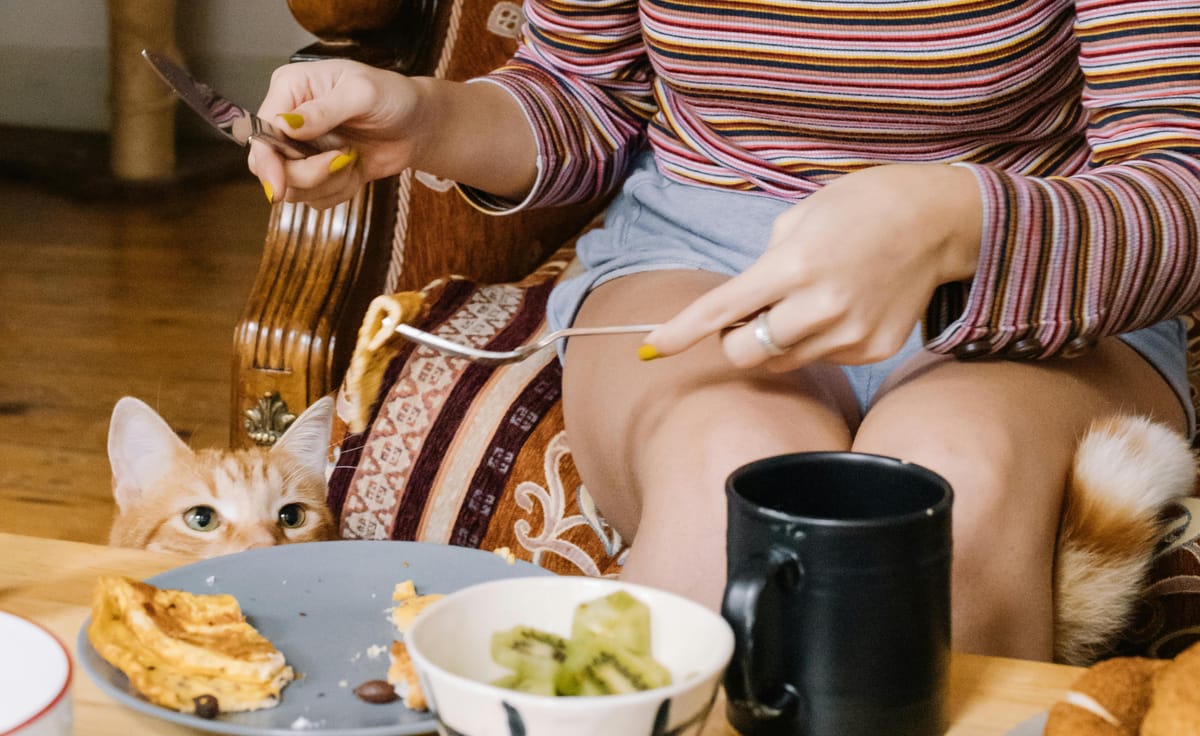Superfoods for Cats: Human Foods That Your Cat SHOULD Eat
Some say any food is safe for pets. Others say human food is very unhealthy for pets. So, who's right? Well...both statements are. Some human foods are safe for cats, and some they should avoid. But also, there are some superfoods they should eat! Keep on reading to find out which ones.

Ever caught your cat staring at your plate like they’re missing out on something amazing? While most human foods aren’t suited for cats, some are actually great for them! In fact, a few of your favorite superfoods can give your cat a health boost. They can help with digestion, keeping their coat shiny, and even supporting their immune system. Here’s a list of healthy human superfoods that are not only safe but a must in your cat’s diet.
Human Superfoods That Are Safe and Great for Your Cat
Some foods are safe and some are unsafe for cats to eat. But these foods are not only safe for your cat, but a must for a healthier and more balanced diet:
Blueberries
These tiny berries are loaded with antioxidants and vitamin C, which can help support your cat’s immune system and overall health.
Oily fish (salmon, sardines, anchovies)
Packed with omega-3 fatty acids, these fish are great for brain health, joint function, and a silky, smooth coat.
Lean meats (chicken, beef, pork)
High in protein and essential amino acids, cooked lean meats help maintain muscle strength and energy levels.
Pumpkin
The ultimate digestion helper! Rich in fiber, pumpkin can prevent constipation and help regulate bowel movements.
Carrots
A great source of beta-carotene and vitamin A, which are good for eyesight and skin health. Serve them cooked for easy digestion.
Other Human Foods Cats Can Enjoy in Moderation
Cooked eggs
Eggs are a great protein source, packed with B vitamins that support energy and brain health.
You should always fully cook them (boiled or scrambled) and serve them plain. Avoid raw eggs, as they can contain bacteria and block vitamin absorption.
Green beans and peas
These low-calorie veggies are full of fiber and vitamins, helping with digestion and weight control.
Cook them before serving and skip the salt or seasoning. Some cats even enjoy frozen peas as a crunchy snack!
Spinach
Spinach is rich in vitamins A, C, and iron, so it supports immune and muscle health.
But cats with urinary issues should avoid it since it contains oxalates that can contribute to kidney stones. Serve in small amounts, either raw or lightly cooked.
Hard cheeses (like cheddar)
Hard cheeses are high in protein and calcium and have less lactose than soft cheeses, making them easier to digest.
But only give your cat tiny amounts as an occasional treat. Too much can cause stomach issues. Avoid processed cheeses with additives.
Strawberries
These antioxidant-rich fruits support immune health and may help with brain and eye function.
Some cats enjoy their texture, but they don’t taste sweet. Serve small, fresh pieces and avoid sugary or canned versions.
Final Thoughts
Adding a few superfoods to your cat’s diet can be a great way to support their health, but it’s important to do it the right way. Always serve these foods cooked and unseasoned, since raw ingredients or spices like garlic and onions can be harmful.
And remember, moderation is key! These are treats, not meal replacements! When in doubt, check with your vet before introducing anything new. A little extra nutrition can go a long way in keeping your cat happy, healthy, and full of energy!